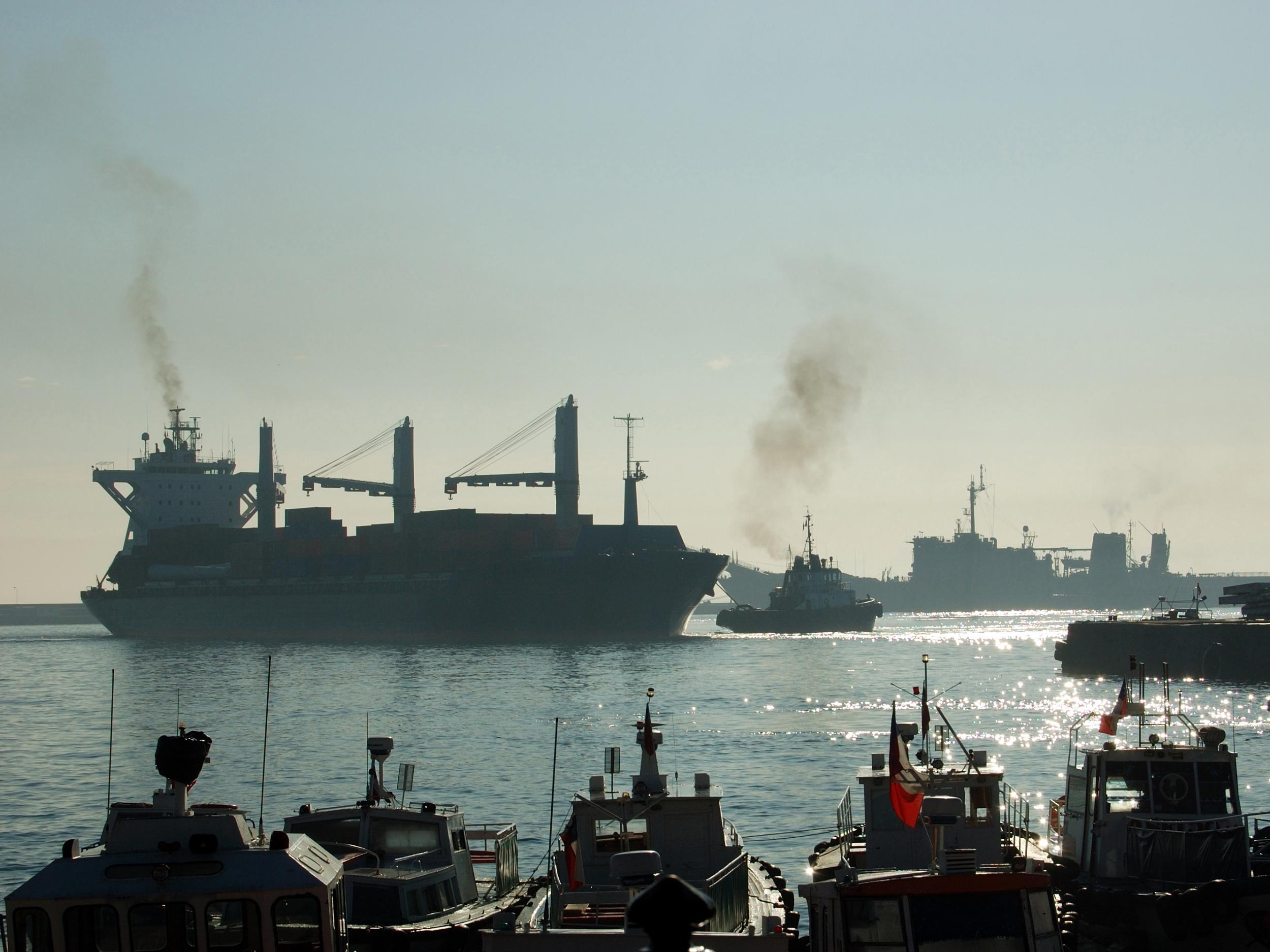Toxic fumes from ships linked to thousands of UK deaths
Study shows more than 3,000 early mortalities linked to toxic fumes from ships around British coast

Your support helps us to tell the story
From reproductive rights to climate change to Big Tech, The Independent is on the ground when the story is developing. Whether it's investigating the financials of Elon Musk's pro-Trump PAC or producing our latest documentary, 'The A Word', which shines a light on the American women fighting for reproductive rights, we know how important it is to parse out the facts from the messaging.
At such a critical moment in US history, we need reporters on the ground. Your donation allows us to keep sending journalists to speak to both sides of the story.
The Independent is trusted by Americans across the entire political spectrum. And unlike many other quality news outlets, we choose not to lock Americans out of our reporting and analysis with paywalls. We believe quality journalism should be available to everyone, paid for by those who can afford it.
Your support makes all the difference.The UK is one of the most vulnerable nations to the toxic fumes spewed out by ships, according to a new study.
Analysis by transport experts reveals more than 3,000 British deaths each year can be attributed to shipping emissions.
Pollution from boats is linked to early deaths as the toxic gases and particles in fumes trigger health problems including asthma, heart disease and cancer.
Despite efforts to clean up the sector, ships still rely on the filthiest fuels for power, resulting in huge volumes of emissions being pumped into the air around port cities.
Using data from 2015, the International Council on Clean Transportation (ICCT) team showed Britain ranked fourth for the total number of people dying prematurely due to shipping fumes, just behind China, Japan and India.
The UK also comes fourth when judged on deaths per 100,000 people, this time ranking alongside other coastal nations such as Singapore and the Netherlands.
“Globally shipping was responsible for about 16 per cent of premature deaths due to [emissions from] transportation – but the UK was in the order of 40 per cent,” said Dr Daniel Rutherford, a marine transport expert at the ICCT.
Britain’s unfortunate position near the top of the charts is largely the result of its proximity to busy shipping lanes to Europe, but also the uneven laws governing pollution on the high seas.
“Critically, only one half of British shore is protected by an emission control area,” said Dr Rutherford.
Ships in the North and Baltic seas must slash sulphur levels in their fuel from 2.5 to 0.1 per cent, meaning they produce lower volumes of the sulphur oxides (SOx) linked to respiratory conditions.
But while the east coast of Britain is protected by this zone, on the other side of the country there are no such restrictions.
Dr Matt Loxham, a toxicologist at the University of Southampton, noted that besides gases like SOx ships also produce “more than their fair share” of ultrafine particles, which can penetrate deep into human tissue.
“These very small particles contribute little to the mass [of pollution] but are thought to be associated with health effects in ways we haven’t quite got a handle on yet,” he said.
The ICCT suggested the UK could seek to establish a new control zone to curb pollution, as European nations are currently trying to do in the Mediterranean.
But while national governments can implement policies to cut pollution from cars, shipping is largely in the hands of the International Maritime Organisation – a UN agency based in London.
“Even if you have very progressive stances from an individual government, it still needs to get into the IMO and be negotiated there,” said Dr Rutherford.
“There is a broader need to reform the IMO and get it moving in the right direction.”
A spokesperson from the IMO said new rules coming into force from 2020 will limit SOx even outside protected zones, which they predict will prevent more than half a million premature deaths around the world.
However, these regulations will still not be as tight as those currently in place in the North Sea, with sulphur in fuel oil cut to just 0.5 per cent instead of the 0.1 per cent allowed in such zones.
Join our commenting forum
Join thought-provoking conversations, follow other Independent readers and see their replies
Comments